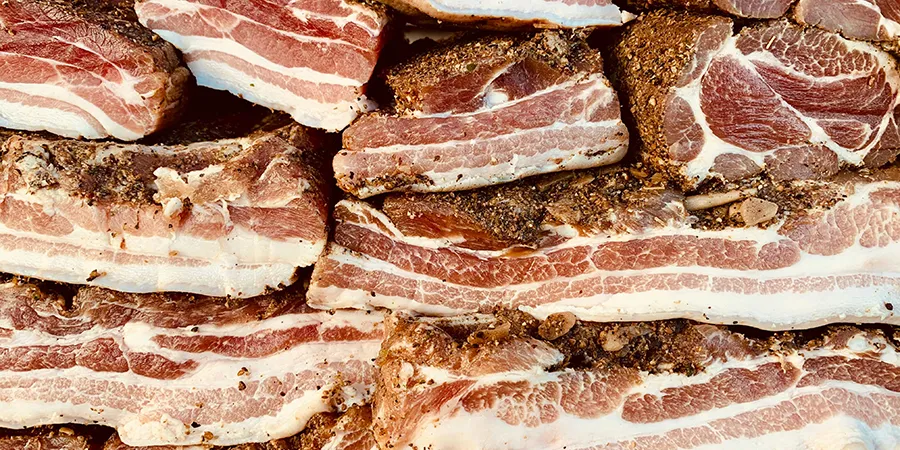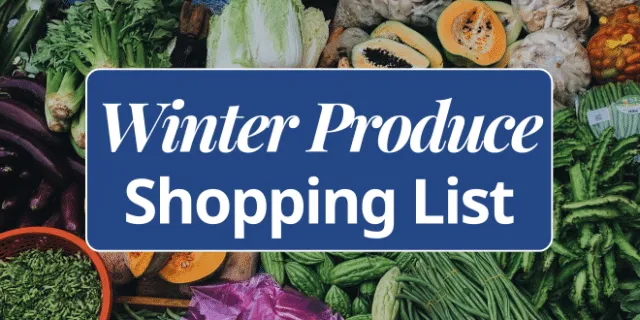Can I eat bacon on the Whole30? The short answer is YES! The longer answer is as long as it’s compatible with the Whole30 program—many brands aren’t. A Registered Dietitian is here to explain Whole30 and Bacon and answer your questions.
Steph here! Bacon is a controversial and often-debated food, and we get a lot of questions about it. So today, I’m answering all of the bacon questions that came direct from our community via the Whole30 Recipes Instagram Story.
If you’re an Instagram user, follow us there … because I pop on the Story frequently to talk nutrition, education, and answer your burning Whole30 questions.
Can I eat bacon on the Whole30?
You can have bacon during your Whole30, provided that the brand you choose is compatible with the Whole30 program. Many brands of bacon contain sugar, so we’ve made it easy on you by partnering with brands that make a sugar-free option! (Check out our Whole30 Approved partners here!)
Why is bacon controversial?
Great question! There is conflicting advice regarding the health impacts of cholesterol, saturated fat, and nitrates found in animal products like bacon. We now know there’s more to the story than simply stating that cholesterol and saturated fat are inherently “bad”. And we now have options like ButcherBox that provide bacon that is uncured, free of nitrates* and added sugar that can fit well into your Whole30 and Food Freedom, in a way that feels/works best for you.
*Except those naturally occurring in sea salt and celery powder
I feel like when I do Whole30 it’s so much grease and meat. How do I change this?
I love that you asked how to change this because it doesn’t HAVE to be that way. In fact, according to our Whole30 Meal template, most of your plate should be filled with veggies!
If you want to follow a more plant-forward approach, try:
- Fill 1/2 (or more!) or your plate with veggies.
- Then add a moderate (palm-sized) portion of protein from a leaner source like ground turkey, chicken breast, white fish, or a few eggs.
- Try nuts, seeds, olive and avocado instead of added oils.
Just make sure you’re adding enough healthy fat when you choose lean sources of protein. Without that added fat you may unintentionally go too low in calories and start feeling less energy, headaches, and experience stronger “kill all the things” feelings.
Is eating Whole30 Approved style bacon regularly a bad thing?
Not necessarily, especially if you’re choosing the best quality you can afford. Should you regularly load your plate with bacon? Probably not. Can bacon be a nice compliment to your breakfast of eggs and berries or used to flavor veggie recipes for picky eaters? Absolutely.
What is the difference between cured and uncured bacon?
All bacon has to be processed in a way that prevents it from going bad. Cured bacon uses nitrates/nitrites, like sodium nitrite that are made synthetically. “Uncured” bacon uses naturally occuring nitrates like beets and celery powder.
Why is bacon SO good?
In case you want a science-y explanation…
Bacon includes 2/3 (or 3/3 if it is a non-compatible brand that contains sugar) compounds that make up what’s called the “bliss point”–salt, fat, sugar. When these compounds are found together in food, in just the right amounts, it excites our taste buds and activates pleasure receptors in the brain.
Is turkey bacon healthy?
The main traditional difference between turkey bacon and regular (pork) bacon is the amount of fat and calories and sometimes sodium.
Turkey bacon usually has less fat and fewer calories. For some people concerned about colorectal cancer or heart disease, the reduction in saturated fat makes them consider it a healthier alternative. But again, there is more to the saturated fat story such as the need to also limit sugar and reduce inflammation to support health outcomes.
If you’re using it as an occasional breakfast protein or a way to flavor veggies, I wouldn’t sweat it. Enjoy your favorite version in reasonable amounts.
Is bacon considered a protein or fat?
We don’t consider bacon a form of protein or suggest you use it as your main source of protein at meals. Some brands of pork bacon actually contain more fat than protein.
Use it as a condiment for your meals, such as bacon crumbles on your salad, to enhance the flavor of your roasted Brussels sprouts, or add a slice to your well-balanced breakfast that includes another main source of protein, like eggs.
















